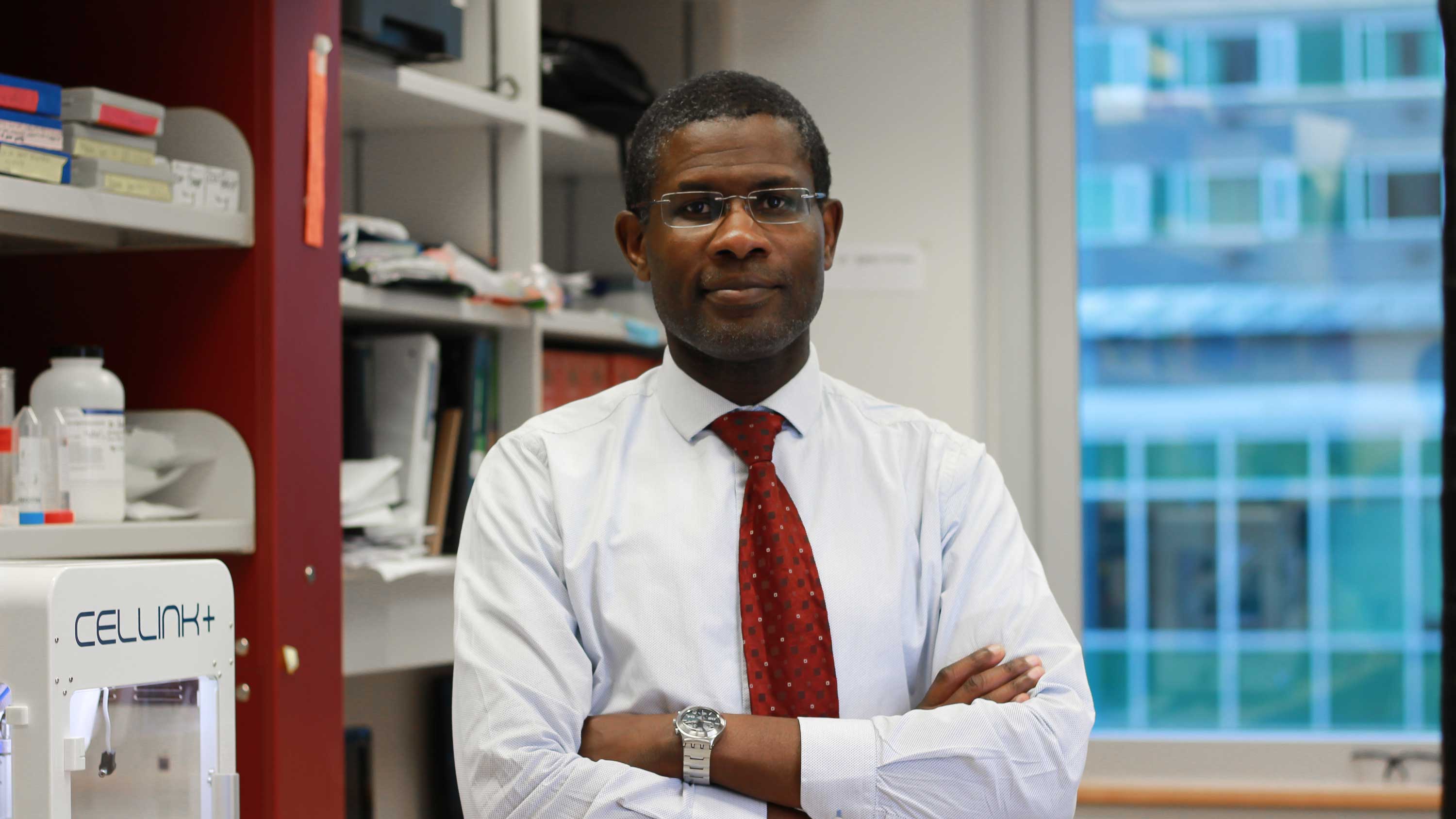Biomedical Space Research Published in Nature
31 January 2023

Dr. Adetola Adesida has published in Nature his team’s research into the effect of spaceflight or simulated spaceflight microgravity on tissue-engineered cartilage developed from human cells. “Transcriptomic response of bioengineered human cartilage to parabolic flight microgravity is sex-dependent” investigates the effect of simulated spaceflight microgravity facilitated by parabolic flights on tissue-engineered cartilage developed from in vitro chondrogenesis of human bone marrow mesenchymal stem cells obtained from age-matched female and male donors. NASA donated the weightlessness simulation equipment and there’s a chance of the team gaining a slot in the International Space Station to conduct research.
Dr. Adesida’s team investigates cell-based tissue engineering and regenerative medicine strategies to treat cartilage defects in orthopaedics and maxillofacial reconstructive surgeries. His work revolves around stem cells, tissue-specific cells (e.g. chondrocytes), 3D bio-printing, mechanobiology and bioreactors. The team has discovered a way to use 3-D bioprinting technology to create custom-shaped cartilage for use in surgical procedures. The work aims to make it easier for surgeons to safely restore the features of skin cancer patients living with nasal cartilage defects after surgery.
The researchers used a specially designed hydrogel—a material similar to Jell-O—that could be mixed with cells harvested from a patient and then printed in a specific shape captured through 3-D imaging. Over a matter of weeks, the material is cultured in a lab to become functional cartilage.
Dr. Adesida says, “It takes a lifetime to make cartilage in an individual, while this method takes about four weeks. So you still expect that there will be some degree of maturity that it has to go through, especially when implanted in the body. But functionally it's able to do the things that cartilage does.”